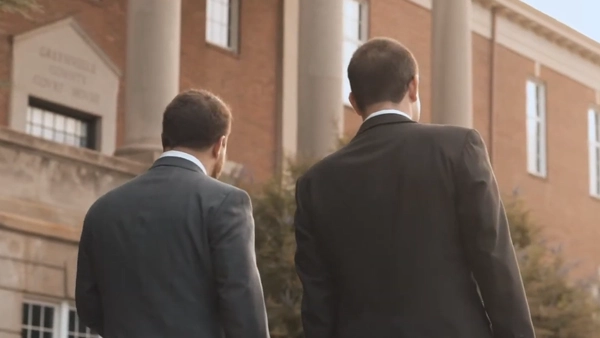Motorcycle helmet laws in South Carolina are straightforward – motorcycle operators and their passengers are only legally required to wear helmets if they’re under 21. Once South Carolina residents reach or surpass this age, they can use their judgment to accept or mitigate the risks of experiencing a severe injury after not wearing a helmet.
However, if you’re involved in a motorcycle accident after choosing not to wear a helmet, the case can become complex, even if it wasn’t your fault. Not only will insurance companies fight tooth and nail to pin liability on you, but the defense could argue your decision not to wear a helmet worsened your injuries.
At David R. Price, Jr., P.A., we’ve helped motorcycle accident victims across South Carolina fight for the compensation they deserve, even when the odds were stacked against them. We know how insurance companies operate, and we know the tactics they use to shift blame.
If you have questions about South Carolina’s motorcycle helmet laws or need help after an accident, reach out at 864-271-2636 for a free case evaluation. Let us help you get the justice and compensation you deserve.
Are You or Your Motorcycle Passengers Under the Age of 21?
By law, all motorcycle riders under the age of 21 must wear a helmet when operating these vehicles. This remains true whether you’re driving a motorcycle, riding as a pillion passenger, or simply taking a brief jaunt down the street.
Moreover, if your motorcycle lacks a windscreen that meets the minimum standards of the Department of Public Safety (DPS), you must additionally wear eye protection in the form of goggles or a face shield. Whether or not a motorcycle has a DPS-approved windscreen, all helmets must have:
- Reflectors on both sides
- Secure chin straps (or neck straps)
- A seal of approval from the DPS
Helmet Specifications for Motorcycle Riders Under 21 Years Old in South Carolina
Safety standards for motorcycle helmets are ultimately determined at the federal level. These are defined by the DOT Federal Motor Vehicle Safety Standard (FMVSS) No. 218. As such, every motorcycle helmet manufactured domestically or imported and sold domestically meets this standard.
Thus, if you are under the age of 21 and are wearing any properly fitted motorcycle helmet you’ve purchased in the U.S., you will have met the legal requirements for helmets in South Carolina. All helmets adhering to the federal standard receive a seal of approval from the DPS.
How Not Wearing a Motorcycle Helmet Can Impact Your Personal Injury Claim
Not wearing a helmet can complicate the process of proving your case. The defense might focus on your decision as a primary factor in the severity of your injuries, shifting the narrative away from the actions of the other party involved in the accident.
Courts often consider the severity and type of injuries when adjudicating personal injury claims. Traumatic brain injuries (TBIs) and other types of head trauma are common in motorcycle accidents, and helmets are proven to reduce the severity of these injuries. If you suffer a head injury while not wearing a helmet, the defense may argue that your decision worsened the injury, affecting the amount of damages you can recover.
Insurance companies scrutinize claims involving motorcyclists who choose not to wear helmets. Even if a helmet is not legally required, insurers may adjust claims based on the perceived riskiness of your behavior. This can manifest as lower settlement offers or disputes over the extent of liability and coverage under the assumption that your decision not to wear a helmet reflects a disregard for safety.
Injuries sustained without a helmet are typically more severe, leading to higher medical bills and potentially prolonged recovery periods. This not only affects your immediate financial stability but can also impact your ability to work, resulting in lost wages and reduced earning capacity.
South Carolina Is a Comparative Negligence State
In South Carolina, compensation for personal injury claims is awarded based on “modified” comparative negligence. Comparative negligence acknowledges that a single party may not be solely responsible for an accident resulting in injury. Just as a driver who turns left without yielding the right of way, the driver that person collides with may be distracted or speeding.
Under South Carolina’s modified comparative negligence system, accident victims can only claim and recoup damages if their share of negligence or fault is 50 percent or less. No damages will be awarded if you are determined to be more than 50 percent at fault for your injuries.
If a failure to wear a helmet is accepted as negligence contributing to your claim, it could be enough to prevent you from recovering compensation.
Steps To Take After a Motorcycle Accident In South Carolina
Motorcycle accidents can be disorienting and traumatic. Knowing the steps to take immediately after an accident can help protect your rights. Here is what you should do.
- Check for Injuries: Assess yourself and others for injuries. Do not remove your helmet if you suspect a neck or head injury. Call 911 immediately – reporting the accident and obtaining a medical check-up at the scene is crucial, even if you think you are not seriously hurt.
- Call the Police: It’s essential to have a police report for insurance purposes and potential legal action. Cooperate with the police but avoid making statements about fault or guilt. Try to simply stick to the facts.
- Seek Medical Attention Right Away: Motorcycle accidents often cause hidden injuries, like internal bleeding, head trauma, or spinal injuries, that may not show symptoms right away. Getting checked out by a doctor protects your health and creates a medical record documenting the accident. That record can be key when it’s time to pursue compensation.
- Exchange Information: Obtain the names, addresses, phone numbers, driver’s license numbers, and insurance details of all parties involved in the accident. If there are witnesses, get their contact information as well.
- Document the Scene: Use your smartphone to take pictures of the accident scene, all vehicles involved, and any visible injuries. Document skid marks, road conditions, traffic signs, and the weather. This evidence can be crucial for insurance claims and any legal actions.
- Notify Your Insurance Company: Inform your insurance company about the accident as soon as you can. Be honest about the incident and your injuries. Avoid admitting fault or giving detailed statements without consulting your lawyer.
- Consult with a Motorcycle Accident Lawyer: Contact a motorcycle accident lawyer who understands South Carolina’s laws and can guide you on the best course of action. Your lawyer will help protect your rights and ensure that you receive fair compensation for your damages and injuries.
How Our Lawyers Can Help with Your Motorcycle Accident
From the moment you reach out to our firm, we’ll take immediate action to investigate your motorcycle accident. Our attorneys gather evidence, interview witnesses, and collaborate with accident reconstruction experts to build a clear and convincing case on your behalf.
Insurance companies are quick to dispute claims, minimize injuries, and pressure accident victims into unfairly low settlements. We handle every interaction with the insurance companies, ensuring they understand the full extent of your injuries and losses, and we protect you from unfair settlement offers or tactics designed to minimize your claim.
At David R. Price, Jr., P.A., we won’t let insurers take advantage of your vulnerability. With years of experience handling motorcycle accident cases, our attorneys know exactly how insurance adjusters think—and how to effectively negotiate a fair, just settlement.
If negotiations fail to yield a fair settlement, our motorcycle accident lawyers are ready and willing to take your case to trial. Our team has earned a strong reputation in South Carolina courts for powerful advocacy, persuasive litigation skills, and obtaining successful jury verdicts. We’ll stand by your side every step of the way, fighting for the full compensation you deserve.
Types Of Compensation That Are Available After a Motorcycle Accident
If you are in a motorcycle accident that is not your fault, you are entitled to compensation intended to make you whole again. Here are the key types of compensation you can get:
Medical Expenses
This would include reimbursement for all medical treatments related to the accident, including hospital stays, surgeries, medications, physical therapy, and any future medical care you may need.
Lost Wages
If your injuries prevent you from working, you can recover compensation for lost wages. This also includes loss of earning capacity if you’re unable to earn as much money as you did before the accident.
Property Damage
This would include compensation for repairs or the replacement of your motorcycle and any other personal property damaged in the accident.
Pain and Suffering
This type of compensation is awarded for the physical and emotional distress caused by the accident. Pain and suffering are subjective and can vary widely in amount. They are based on the severity of your injuries, the pain and discomfort you endure, and how your life has been impacted by the accident.
Loss of Consortium
If an accident affects your relationship with your spouse, then your spouse may be eligible for loss of consortium damages. These damages compensate for the loss of companionship, affection, and support.
Punitive Damages
In cases where the other party’s conduct was egregious or reckless, punitive damages may be awarded. These are intended to punish the wrongdoer and deter similar behavior in the future.
Contact a Greenville Motorcycle Accident Attorney
Motorcycle accidents are often devastating. Since motorcycles lack the protections provided by cars, trucks, SUVs, and crossovers, motorcycle operators and their passengers who are involved in collisions are more likely to suffer traumatic brain injuries, permanent scars, disfiguring injuries, maiming injuries, disabling injuries, and more.
At David R. Price, Jr., P.A., we can help you recover the fair compensation you deserve, even if the importance of wearing a motorcycle helmet is something you’ve only realized in hindsight. Contact our motorcycle accident lawyers at 864-271-2636 to schedule a consultation appointment.
South Carolina Motorcycle Helmet FAQs
+ Are there legally acceptable excuses for not wearing a motorcycle helmet?
If you are under the age of 21 and riding on or operating a motorcycle, you are legally required to wear a helmet at all times. You should choose an alternative mode of transportation if you are medically unable to wear a helmet.
+ Why aren’t people over the age of 21 legally required to wear helmets in South Carolina?
The law assumes that motorcycle riders and passengers who are at least 21 years old are responsible enough to determine for themselves whether to take this basic, life-saving measure. However, people over the age of 21 are not less likely to sustain traumatic brain injury (TBI) or other serious injuries when involved in auto accidents without helmets.
+ What if my claim has been denied due to failure to wear a helmet?
Even if you weren’t wearing a helmet during your motorcycle accident, when you work with David R. Price, Jr., P.A., we can review the circumstances of your case and potentially correct errors in the assessment of negligence, in order to help you obtain the compensation that you need and deserve.







